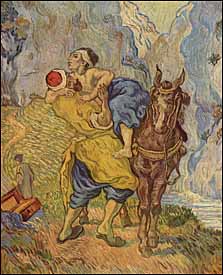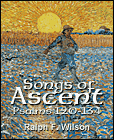Free E-Mail
Bible Studies
Beginning the Journey (for new Christians). en Español
Old Testament
Abraham
Jacob
Moses
Joshua
Gideon
David, Life of
Elijah
Psalms
Solomon
Songs of Ascent (Ps 120-135)
Isaiah
Advent/Messianic Scriptures
Daniel
Rebuild & Renew: Post-Exilic Books
Gospels
Christmas Incarnation
(Mt, Lk)
Sermon on the Mount
(Mt 5-7)
Mark
Luke's
Gospel
John's Gospel
7 Last Words of Christ
Parables
Jesus and the Kingdom
Resurrection
Apostle Peter
Acts
The Early Church
(Acts 1-12)
Apostle Paul
(Acts 12-28)
Paul's Epistles
Christ Powered Life (Rom 5-8)
1 Corinthians
2 Corinthians
Galatians
Ephesians
Vision for Church
(Eph)
Philippians
Colossians,
Philemon
1
& 2 Thessalonians
1 & 2 Timothy,
Titus
General Epistles
Hebrews
James
1 Peter
2 Peter, Jude
1, 2, and 3 John
Revelation
Revelation
Conquering Lamb of Revelation
Topical
Glorious Kingdom, The
Grace
Great Prayers
Holy Spirit, Disciple's Guide
Humility
Lamb of God
Listening for God's Voice
Lord's Supper
Names of God
Names of Jesus
Christian Art
About Us
Podcasts
Contact Us
Dr. Wilson's Books
Donations
Watercolors
Sitemap
4. Psalm 123. Pleading for God's Mercy
 Jesus' Parable of the Good Samaritan displays the kind of mercy God shows and wants us to emulate. Vincent Van Gogh, 'The Good Samaritan (after Delacroix)' (1890), oil on canvas, 29 x 24 in., Kröller-Müller Museum, Otterlo, Netherlands. |
Psalm 123 is a lament, a cry for mercy that represents a community that has been despised and oppressed, a community that is looking to God for mercy.
"A Song of Ascents
1 To you I lift up my eyes,
O you who are enthroned in the heavens!
2 Behold, as the eyes of servants look
to the hand of their master,
as the eyes of a maidservant
to the hand of her mistress,
so our eyes look to the LORD our God,
till he has mercy upon us.
3 Have mercy upon us, O LORD,
have mercy upon us,
for we have had more than enough of contempt.
4 Our soul has had more than enough
of the scorn of those who are at ease,
of the contempt of the proud." (Psalm 123:1-4, ESV)
The Bitterness of Exile (Psalm 123:3-4)
The pain from which this psalm arises can be seen in verses 3 and 4.
"3b We have had more than enough of contempt.45
4 Our soul has had more than enough
of the scorn46 of those who are at ease,
of the contempt of the proud." (Psalm 123:3b-4)
 Location of Jews during Babylonian Exile. Larger map. |
I think it is likely that this psalm was written during the Exile, when the Israelites were a subjugated people, living far from their homeland. Of course, it could have been another difficult time in their history, but the Exile fits the words well.
The Israelites are defeated exiles who have been deported from their homeland after the fall of Jerusalem to Babylonian armies, the superpower of that era. Now they have to start over.
They are used to the hill country of Judah. Many of them enjoyed the bustling life of Jerusalem, Judah's capital. But now they dwell in rude huts in an utterly flat agricultural delta between the Tigris and Euphrates Rivers, many hundreds of miles from their home.
They are a shepherd people with no sheep. They have to work the land for their oppressors in order to survive. Their lives are turned upside down. Life is hard enough, but the racist taunts of their overlords make it very bitter. They are utterly humiliated!
Their oppressors are probably the land owners in whose fields they labor. These Babylonians are "proud," "arrogant,"47 and "at ease,"48 content to watch the Hebrews do hard labor while they watch and criticize. They have no graciousness. They make no attempt to hide their contempt for these foreigners. They taunt them unmercifully. The overlords can't contain their scorn.
The True Overlord, Yahweh, Enthroned in Heaven (Psalm 123:1)
And so the Hebrews turn to their true Overlord, Yahweh the Almighty. The psalmist cries out:
"To you I lift up my eyes,
O you who are enthroned49 in the heavens!" (Psalm 123:1)
The picture is one of the heavenly throne room, perhaps one like Isaiah's vision.
"I saw the Lord sitting upon a throne,
high and lifted up;
and the train of his robe filled the temple." (Isaiah 6:1)
Yahweh is enthroned in splendor in heaven itself, rather than seated on a rickety chair in the shabby house of some minor Babylonian landowner who is making the psalmist's life miserable. With the eyes of faith, the psalmist sees beyond his circumstances to the grandeur of the Lord. Perhaps he is prostrate before the throne, but now he "lifts up his eyes" in petition.
Slaves Look to Their Master (Psalm 123:2)
There is no use in asking for help from his arrogant landowner, whose character is one of pride and superiority. But Yahweh, his true Master, is different. In him there is hope, because Yahweh's character is different. He is:
"Merciful and gracious, slow to anger,
and abounding in steadfast love and faithfulness,
keeping steadfast love for thousands,
forgiving iniquity and transgression and sin...." (Exodus 34:6-7a)
To be a servant or handmaiden in the house of a Master of such character gives confidence. When we have a problem or need, we come to the Master, whom we trust to help us. And so we come, lifting up our eyes to him, humbly bringing our needs, patiently looking to him to supply our needs, for we know he will.
"Behold, as the eyes of servants50 look to the hand of their master,51
as the eyes of a maidservant52 to the hand of her mistress,53
so our eyes look to the LORD our God,
till he has mercy upon us." (Psalm 123:2)
Our prayer is simple:
"Have mercy54 upon us,
O LORD,
have mercy upon us." (Psalm 123:3)
And he does have mercy on us. Abundant mercy to rescue us from the captivity of our sins, and then overflowing grace to meet our needs, one by one, as we come to him with faith and humility.
You may be crushed, humiliated. Your life may have collapsed. You are at the bottom. But you know this: You can come before your Master with your plea and he will hear you. He is far greater than any enemy who has come against you, far more powerful than any obstacle you may be facing. Come before him, lift your eyes to him, offer your request, and then know that he hears you and will answer you according to his wisdom and grace.
Mercy for the Oppressed among Us
I think there is another lesson here for us. And that is to have compassion for the downtrodden and oppressed of our own communities. In this psalm, the Israelites were the foreigners and the Babylonians were the citizens who held foreigners in contempt, if I'm interpreting it correctly.
Often this contempt, this haughty superiority, is shown towards aliens, far from home, who have come to live in our communities. In America, there was a time when the Irish and the Italians and the Polish immigrants bore the brunt of taunts and racial slurs. The African and their descendants, who had slaved in our fields, were despised, too.
"3b We have had more than enough of contempt.
4 Our soul has had more than enough
of the scorn of those who are at ease,
of the contempt of the proud." (Psalm 123:3b-4)
In Europe, it may be the immigrants from Libya and Syria, or those who have come to the homeland from former colonies who are despised and discriminated against. Or it may be the low paid workers who pick our crops or work in our factories for whom we have contempt. Or a despised tribe or caste among us or in a neighboring village. The problem and the sin is universal.
But contempt for the strangers and exiles in our midst has no place for followers of Yahweh, for disciples of Jesus the Messiah. Consider this stern word from Deuteronomy:
"16 Circumcise therefore the foreskin of your heart, and be no longer stubborn. 17 For the LORD your God is God of gods and Lord of lords, the great, the mighty, and the awesome God, who is not partial and takes no bribe. 18 He executes justice for the fatherless and the widow, and loves the sojourner, giving him food and clothing. 19 Love the sojourner, therefore, for you were sojourners in the land of Egypt." (Deuteronomy 10:16-19)
Love -- especially love for the aliens and exiles among us -- requires humility not pride, caring not contempt. When the text says to "circumcise the foreskin of your heart," he means that we must repent and be like our Lord, not the unloving, selfish sinners around us.
As I write this, America is going through soul-searching after the brutal killing of George Floyd that has triggered demonstrations in cities around the world. We have seen the ugliness of racially-motivated violence.
The psalmist calls to Yahweh for mercy from the proud and haughty, and Yahweh hears. By the same token, God help us if we are the proud, the racist, the one intolerant of the foreigners who are among us. Unless we repent, God will deal with us strongly. For his law is love, and Jesus' illustration of the neighbor, whom we are required to love, is a Samaritan loving a Jew. Or perhaps a modern-day Arab loving an Israeli. You get the picture. "Love your neighbor as yourself!" That is our standard.
Prayer
 Available in paperback, PDF, and Kindle formats. |
Father, forgive us for our racism. Forgive us for our prejudice against the foreigners who live among us. Forgive us and cleanse us. And replace our miserable hearts with your heart of love. You who loved the unlovely, change us into people who are like You. In Jesus' name, we pray. Amen.
Meditation
Day 4 Meditation (Psalm 123). What does this psalm teach us about trust that our Master will right our wrongs? What does it teach us about contempt for others? What group of people in your particular community most bear the brunt of prejudice? What can you do to go out of your way to show active love toward them? https://www.joyfulheart.com/forums/topic/1903-4-mercy/
Endnotes
[45] "Contempt" in verses 3 and 4 is the noun bûz, "contempt" from the verb bûz, "despise, hold as insignificant" (Elmer A. Martens, TWOT #213a).
[46] "Scorn" in verse 4 is the noun laʿag, "mocking, derision," from lāʿag, "mock, deride" (TWOT #1118a).
[47] "The proud" (ESV, NRSV, KJV), "the arrogant" (NIV) is gaʾayôn (only found in this verse), from gāʾâ, "rise up, grow up, be exalted in triumph." The primary meaning of this root is "to rise." (TWOT #299g).
[48] "Those who are at ease" (ESV, NRSV, KJV), "the proud" (NIV) is the plural adjective substantive of shaʾanān, "at ease, quiet, secure," and when used as a substantive, "security, pride, arrogance." This adjective describes the condition of life in peace and tranquility, and it is thus used in both a good and bad sense, "quiet," and as a substantive "pride." (Gary G. Cohen, TWOT #2304a). "At ease, untroubled, undisturbed" (Holladay, 357). In Isaiah 32:9 it is used pejoratively in parallel with "complacent."
[49] "Enthroned" (ESV, NRSV), "throne" (NIV), "dwellest" (KJV) is yāshab, "sit, remain, dwell," with the basic idea of, "to sit" (TWOT #922).
[50] "Servants" (ESV, NRSV, KJV), "slaves" (NIV) is ʿebed, "slave, servant" (TWOT #1153a).
[51] "Master" is ʾādôn, "lord, master, owner" (TWOT #27b).
[52] "Maidservant" (ESV), "maid" (NIV, NRSV), "maiden" (KJV) is shipḥâ, "maidservant, maid," female slave (TWOT #2442a).
[53] "Mistress" is gebîrâ, "lady, queen" (TWOT #310d).
[54] "Mercy" in vss. 2-3 is the Qal stem of ḥānan, "be gracious; pity." The verb ḥānan depicts a heartfelt response by someone who has something to give to one who has a need. According to Flack, the verb describes "an action from a superior to an inferior who has no real claim for gracious treatment" (Edwin Yamauchi, TWOT #694).
Copyright © 2025, Ralph F. Wilson. <pastor![]() joyfulheart.com> All rights reserved. A single copy of this article is free. Do not put this on a website. See legal, copyright, and reprint information.
joyfulheart.com> All rights reserved. A single copy of this article is free. Do not put this on a website. See legal, copyright, and reprint information.
 |

|
In-depth Bible study books
You can purchase one of Dr. Wilson's complete Bible studies in PDF, Kindle, or paperback format -- currently 48 books in the JesusWalk Bible Study Series.
Old Testament
- Abraham, Faith of
- Jacob, Life of
- Moses the Reluctant Leader
- Joshua
- Gideon
- David, Life of
- Elijah
- Psalms
- Solomon
- Songs of Ascent (Psalms 120-134)
- Isaiah
- 28 Advent Scriptures (Messianic)
- Daniel
- Rebuild & Renew: Post-Exilic Books
Gospels
- Christmas Incarnation (Mt, Lk)
- Sermon on the Mount (Mt 5-7)
- Luke's Gospel
- John's Gospel
- Seven Last Words of Christ
- Parables
- Jesus and the Kingdom of God
- Resurrection and Easter Faith
- Apostle Peter
Acts
Pauline Epistles
- Romans 5-8 (Christ-Powered Life)
- 1 Corinthians
- 2 Corinthians
- Galatians
- Ephesians
- Philippians
- Colossians, Philemon
- 1 & 2 Thessalonians
- 1 &2 Timothy, Titus
General Epistles
Revelation
Topical

 To be notified about future articles, stories, and Bible studies, why don't you subscribe to our free newsletter, The Joyful Heart, by placing your e-mail address in the box below. We respect your
To be notified about future articles, stories, and Bible studies, why don't you subscribe to our free newsletter, The Joyful Heart, by placing your e-mail address in the box below. We respect your